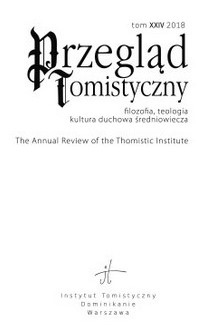DOMINIQUE POIREL, Heymeric de Campo, the Extreme Scholastic

Tom XXIV: 2018
Filozofia — Teologia— Kultura duchowa średniowiecza
ISSN 0860-0015
e-ISSN 2544-1000
SUMMARY
Heymeric de Campo († 1460), whose Tractatus de naturali veritatis catholice circa principia philosophie christiane universalia analesy was critically edited by Zenon Kaluza, is characterized by a singular style, recognizable by its endless sentences often occupying one to several pages. In this contribution I wish to study this particularity from three points of view: 1) What syntactic and rhetorical processes does the author use to compose such long and complex sentences? 2) How should we edit and punctuate these texts without cutting them incorrectly while providing the reader with the necessary hierarchical clues that allow him to construct them without too much effort on his part? 3) What does Heymeric’s preference for endless sentences mean? I would like to show that Heymeric strives to synthesize all the previous traditions, without losing any of their own differences, but without abdicating the ambition to reunify them. His complex sentence, on the verge of explosion, is like the symbol of this recapitulative effort, which reached its final limits before the end of a certain scholastic age.
